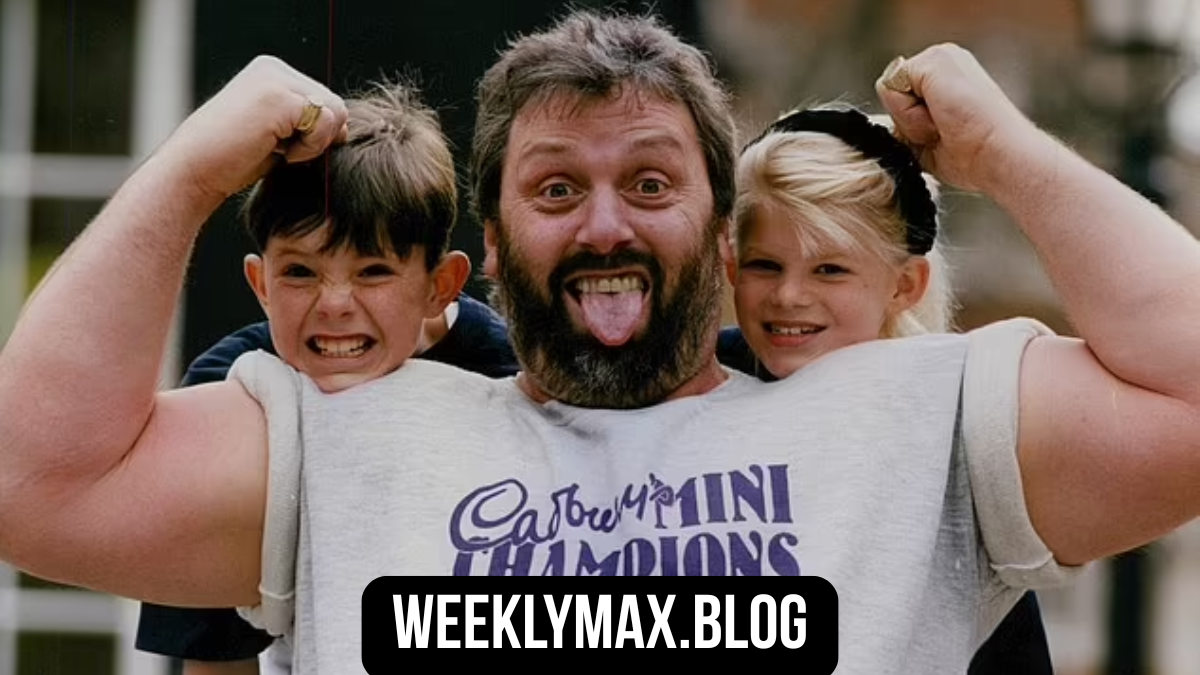Introduction to Geoff Capes and His Legacy
Geoff Capes Health Problems is a name synonymous with strength, determination, and resilience. Known worldwide as one of the most celebrated strongmen of his era, Capes made a lasting mark in sports history through his achievements in athletics, shot put, and World’s Strongest Man competitions. Beyond his medals, victories, and towering presence, Geoff Capes has also lived a life marked by health challenges that have shaped his later years.
When people think about “Geoff Capes health problems,” the subject often sparks curiosity because he once appeared nearly invincible. His image as a strongman contrasts with the physical struggles he has endured over time. Understanding his health journey not only gives insight into the life of a world-class athlete but also highlights the universal truth that even the strongest bodies are not immune to health issues.
The Physical Toll of a Strongman Career
To understand Geoff Capes’ health problems Geoff Capes Health Problems is important to recognize the lifestyle and demands that came with his career. Strongman competitions, particularly during the 1970s and 1980s, pushed athletes to their limits. Capes trained under intense physical stress, lifting extreme weights, pulling trucks, carrying stones, and exerting himself in ways that few outside of the sport could imagine.
These activities built his reputation but also placed incredible strain on his joints, muscles, and cardiovascular system. As with many retired athletes, the toll of years of heavy lifting and physical exertion manifested later in life. Joint pain, mobility challenges, and general wear-and-tear on the body are among the natural consequences of his sporting background.
Health Issues After Retirement
After retiring from professional competition, Geoff Capes faced a number of health-related issues. While his strength and discipline gave him the tools to face these difficulties, his post-retirement years included struggles that reflected both the physical burden of his past career and the natural effects of aging.
Arthritis and joint pain are commonly associated with strongmen, and Capes has spoken about the impact of long-term strain on his body. The heavy lifting and repetitive training put stress on his knees, hips, and back. These problems have sometimes limited his mobility and made day-to-day activities more difficult compared to his prime athletic years.
Cardiovascular concerns are another area of interest when discussing Geoff Capes’ health. Strongmen often carried enormous body mass during their careers, and while much of it was muscle, the sheer weight put pressure on the heart and other organs. Maintaining cardiovascular health in later life became an important aspect of Capes’ journey, as he sought to balance the legacy of his strongman physique with the realities of aging.
Psychological and Emotional Dimensions of Health
While physical health problems are most visible, there is also a psychological aspect to Geoff Capes’ health story. Transitioning from being at the peak of strength and fame to facing physical limitations can be emotionally challenging. Many athletes experience difficulties in adjusting to life after competition, and this mental struggle can be just as significant as the physical ailments.
Capes, however, found solace and purpose through his passions outside of sport. Known for his love of budgerigars (a type of parakeet), he became a respected breeder and judge in the bird-keeping community. This passion not only gave him joy but also supported his mental well-being. It shows how finding new purposes in life can help retired athletes cope with health problems and aging.
Public Perception of Geoff Capes’ Health
Over the years, media outlets and fans have speculated about Geoff Capes’ health, particularly as he became less visible in mainstream sports coverage. Any change in his public appearances often fueled questions about his condition. While some exaggerated stories circulated, Capes himself has occasionally shared insights into the challenges he faces, maintaining a dignified openness while also guarding his privacy.
This balance between public curiosity and personal dignity is a common theme for retired athletes. The fascination with Geoff Capes’ health problems is not just about medical conditions but about the broader story of a man who once embodied superhuman strength now navigating the vulnerabilities of human aging.
The Broader Lessons from Geoff Capes’ Health Journey
Geoff Capes’ health problems provide lessons that extend far beyond his personal life. They remind us of the importance of maintaining long-term health, even for those who seem indestructible in their youth. They also illustrate the consequences of extreme physical careers and the adjustments required as the body ages.
Perhaps the most important lesson lies in resilience. Despite pain, reduced mobility, and the natural decline of age, Capes remains a symbol of perseverance. His continued involvement in his hobbies and his ability to inspire others prove that health problems do not define a person’s entire life.
FAQs About Geoff Capes Health Problems
Who is Geoff Capes?
Geoff Capes is a former British strongman, shot put champion, and two-time World’s Strongest Man winner. He is widely regarded as one of the strongest men of his generation.
What health problems has Geoff Capes faced?
Over the years, Geoff Capes has experienced joint pain, arthritis, and mobility issues, largely due to the physical demands of his strongman career. Like many athletes of his size, he has also needed to monitor his cardiovascular health.
Are Geoff Capes’ health problems life-threatening?
There has been no public information suggesting that his health problems are life-threatening. Most of his issues appear related to wear-and-tear from his athletic career and the natural effects of aging.
How has Geoff Capes managed his health in retirement?
Capes has adapted to his health challenges by focusing on lifestyle adjustments and pursuing his passion for bird breeding. His continued activity in personal hobbies helps support his physical and mental well-being.
Why are people interested in Geoff Capes’ health today?
Geoff Capes’ reputation as one of the strongest men in the world creates curiosity about how someone so powerful manages health in later life. Fans remain fascinated by his journey from peak strength to managing aging and health challenges.
What can athletes learn from Geoff Capes’ health problems?
Athletes can learn the importance of balancing peak performance with long-term health. Geoff Capes’ journey shows how careers built on extreme physical exertion can have lasting effects, making post-retirement health management crucial.
Does Geoff Capes still appear in public despite his health issues?
Yes, Geoff Capes continues to make appearances, particularly within the bird-breeding community. While he may not be as publicly active in sports, he remains engaged in his passions.
Is Geoff Capes still active in sports or strongman events?
No, Geoff Capes has retired from competitive sports. However, his legacy in strongman history continues, and his name is often referenced in discussions about the greatest athletes of the sport.
What role did his size play in his later health problems?
Capes’ large size, necessary for strongman competitions, contributed to stress on his joints and cardiovascular system. While it helped him dominate in competition, it also created health risks later in life.
How does Geoff Capes inspire people despite his health problems?
Geoff Capes inspires people by showing resilience and adaptability. He demonstrates that even after a career of extreme physical demands, one can find fulfillment and purpose in new pursuits. His health journey highlights the strength of Geoff Capes Health Problems the strength of muscles.
Conclusion
Geoff Capes’ health problems form an important part of his life story, but they do not overshadow his achievements or legacy. From the pinnacle of sporting strength to the challenges of aging, his journey offers lessons in perseverance, adaptation, and the human condition. His openness about his struggles reminds us that even legends face health difficulties, but it is how they respond that defines their legacy.



